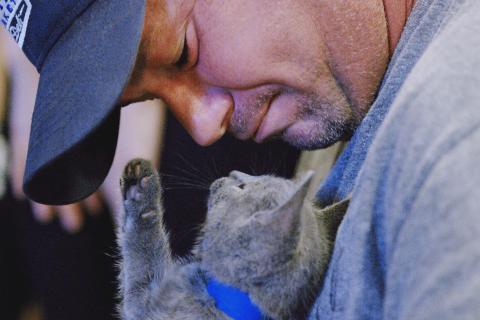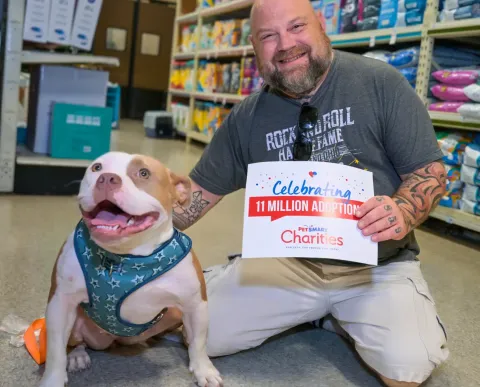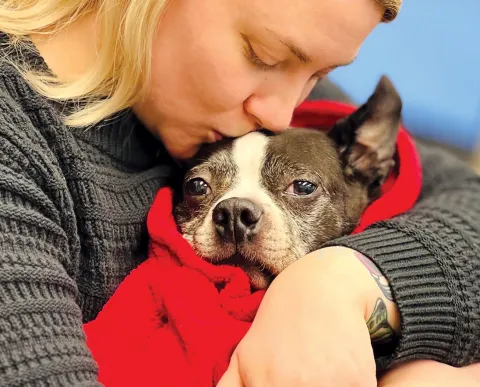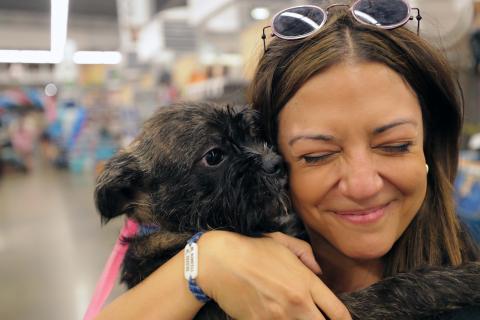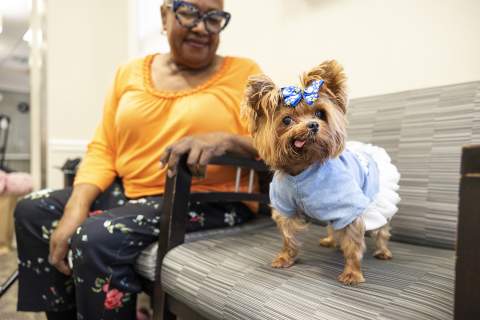Today, 97% of pet parents consider their pets as family — including 51% who say they count as much as human members. The companionship of pets helps people experience profound health benefits. Our precious pets add so much to our lives, and yet, at PetSmart Charities, we estimate that 50 million pets in the U.S. don’t receive the veterinary care they need to thrive.
It’s why we are committed to addressing key barriers preventing access to veterinary care. As a critical step, we partnered with Gallup®, launching a series of research studies to gain insight. The data uncovered in the PetSmart Charities-Gallup State of Pet Care Study: Pet Parents’ Assessment of American Veterinary Care will inform our strategy, and marshal others to the cause. First, we asked pet parents themselves to weigh in on their experiences. Next year, veterinarians will have a chance to share their perspective, too.
The results were revealing and confirmed what we had seen and heard anecdotally — that pet parents across all incomes are struggling with the rising cost of vet care.
More than half of U.S. pet owners, 52%, report having skipped needed veterinary care in the past year, including 37% who say they have visited the veterinarian but declined one or more care recommendations and 15% who say they have not brought their pet to the veterinarian because of barriers such as financial considerations.
We know skipping those important visits for preventative care and other services isn’t ideal and can often lead to bigger problems.
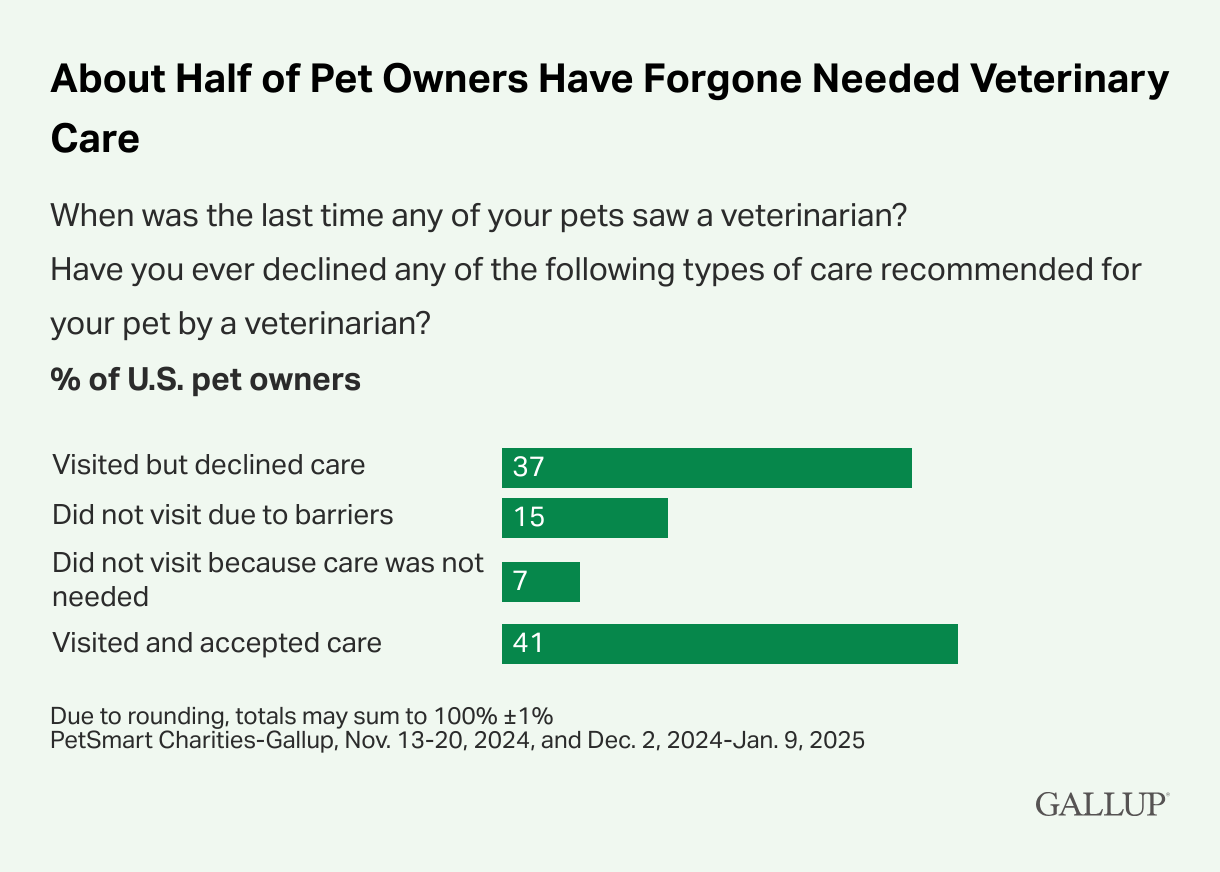
These results are from the PetSmart Charities-Gallup State of Pet Care Study, conducted Nov. 13, 2024-Jan. 9, 2025, via the probability-based Gallup Panel with 2,498 U.S. adults who own at least one dog or cat.
Financial Considerations Are Leading Barriers to Care
Financial constraints are the primary barriers preventing pet owners from following recommended care. Among those who have declined services or skipped visiting the veterinarian, 71% cite cost as the key factor — whether because they could not afford it, they did not think it was worth the cost, or both. Across age, race and income levels, at least two-thirds of pet owners who declined care report that financial limitations have hindered their ability to access veterinary care.
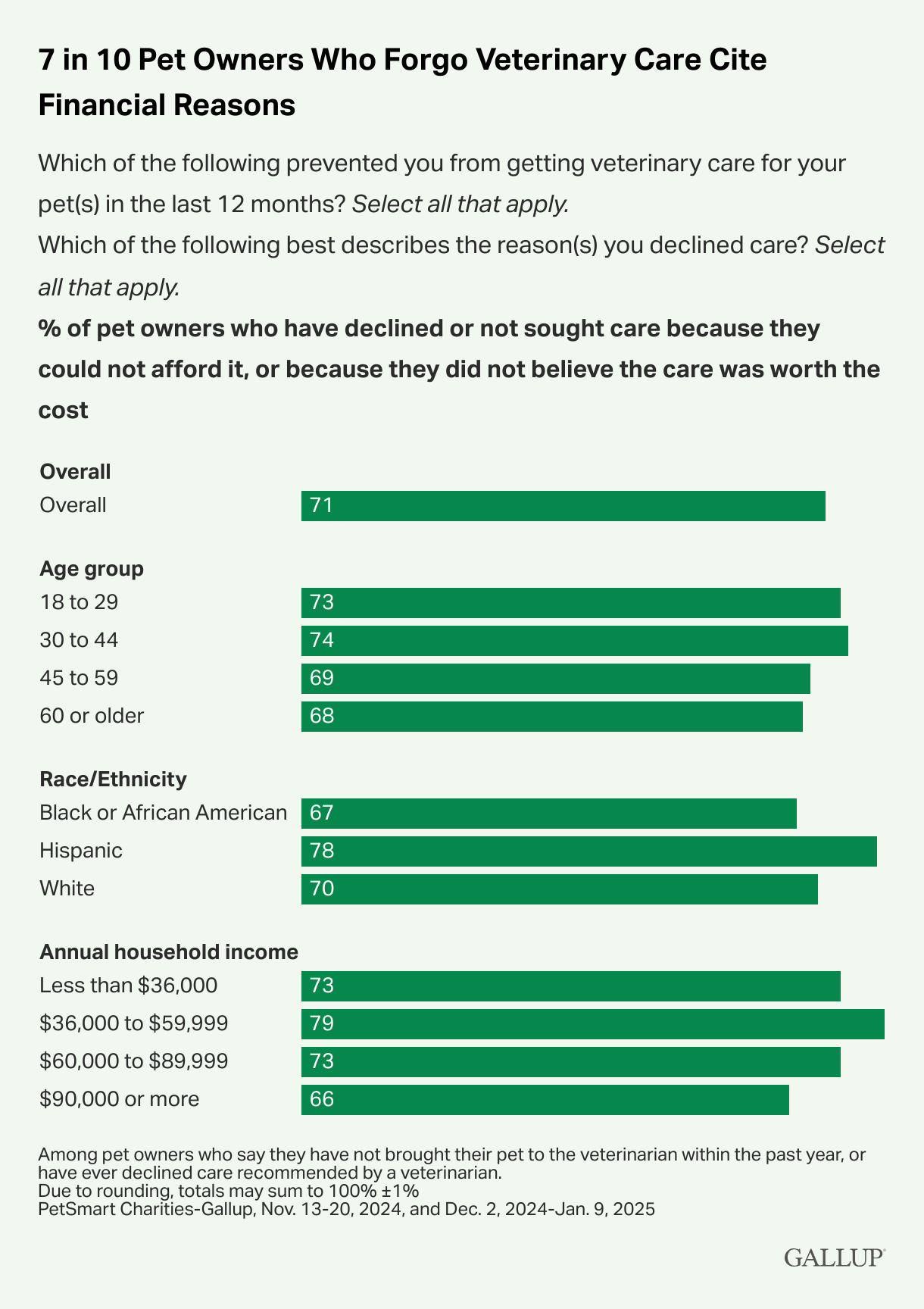
The affordability of veterinary care is a challenge even for pet parents in the highest-earning households. One in three pet parents with annual household incomes of at least $90,000 who have not brought their pet to the vet or who declined recommended care say they skipped care because they could not afford it.
It made sense that pet parents with lower incomes were certain to feel the pinch; it was surprising to learn higher income families were impacted, too.
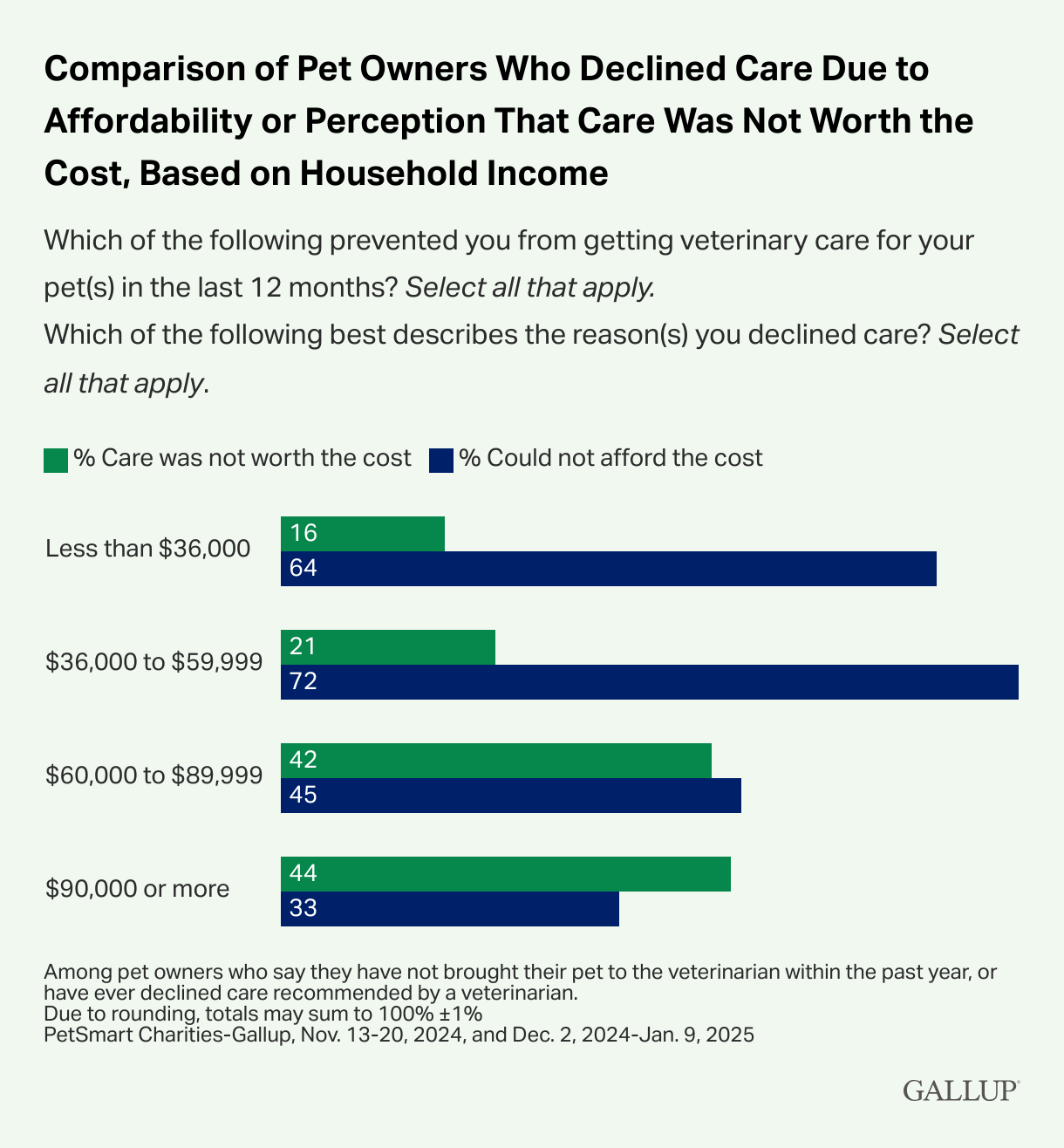
Beyond cost, 29% of pet owners who have turned down care say it was because it was impractical or too stressful for their pet, highlighting the need for treatment plans that align with both financial realities and pet family needs.
Few Alternatives Offered to Those Facing Financial Barriers to Care
Despite the financial constraints preventing access to veterinary care, most pet parents who declined treatment were not presented with lower-cost alternatives — 73% of those who turned down care due to cost were not offered a more affordable option, and 46% were not given a treatment plan that better fit their pet’s practical needs.
Veterinary practitioners are commonly trained to deliver "gold standard" care. It's not surprising pet parents report not being given alternative, flexible treatment options that could provide some level of care at prices that meet budget needs. Part of a $100 million commitment made by PetSmart Charities involves initiatives in higher education to teach veterinary students about a "spectrum of care" that allows more flexibility in treatment plans.
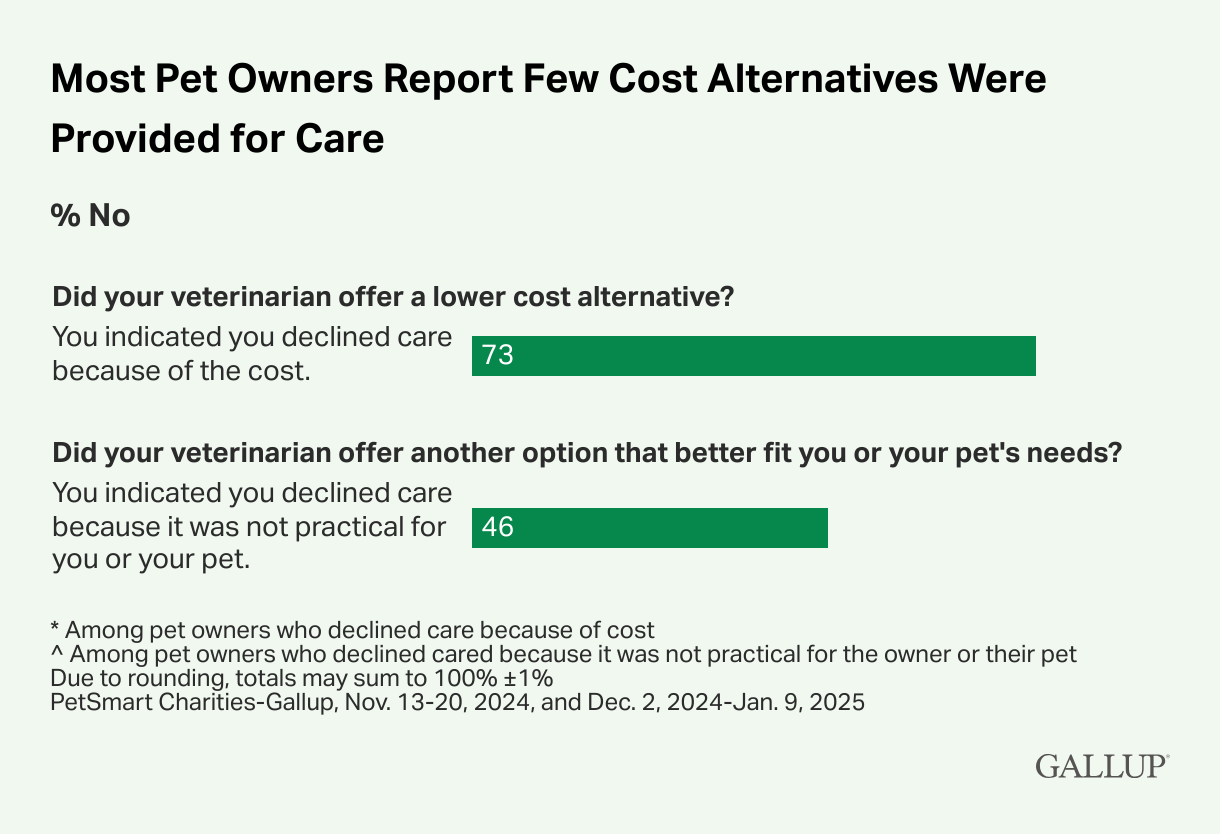
Interest-free payment plans could be one solution, among others including offering more flexible and budget-friendly treatment options. About two-thirds of pet owners (66%) say that if their pet required lifesaving treatment, the amount they would be able to pay for the cost of that treatment would be $1,000 or less. Sixty-four percent of all U.S. pet owners say that if their veterinarian offered them the option to pay the cost of lifesaving care over a one-year period through an interest-free payment plan, they could at least double the amount they previously said they would be able to afford for that care. However, fewer than one in four pet owners (23%) report ever having been offered a payment plan by their veterinarian for any treatment.
With support, education and training, the veterinary industry can take steps to update the standard polices around the requirement of same-day payment for services.
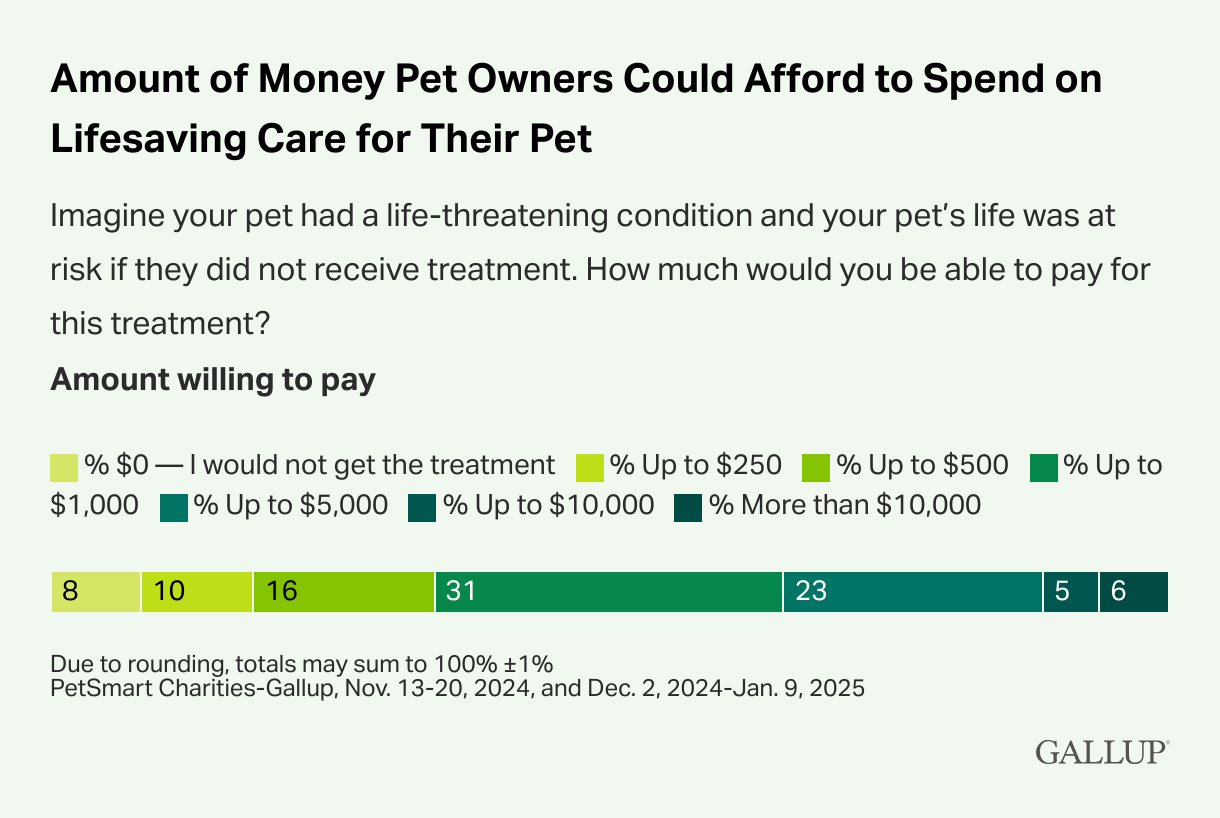
Consequences of Skipping Veterinary Care
Forgoing recommended veterinary care is associated with poor pet health outcomes, and that impacts pet parents and veterinary care teams, too. No one wants to see their companion or patient suffer. Veterinary practices want to help, but also need to run solvent businesses. They have a vested interest in embracing new solutions and knowledge around options they can implement.
The most commonly declined services include diagnostic procedures (22%) and preventive care such as vaccinations (18%), while 16% of all pet owners have declined elective surgeries, 11% have forgone recommended medications, and 7% have refused lifesaving surgeries. Among those who have declined care, 14% report that their pet's condition worsened, or their pet died. It’s a tragic outcome for pets, their people and their veterinary care teams.
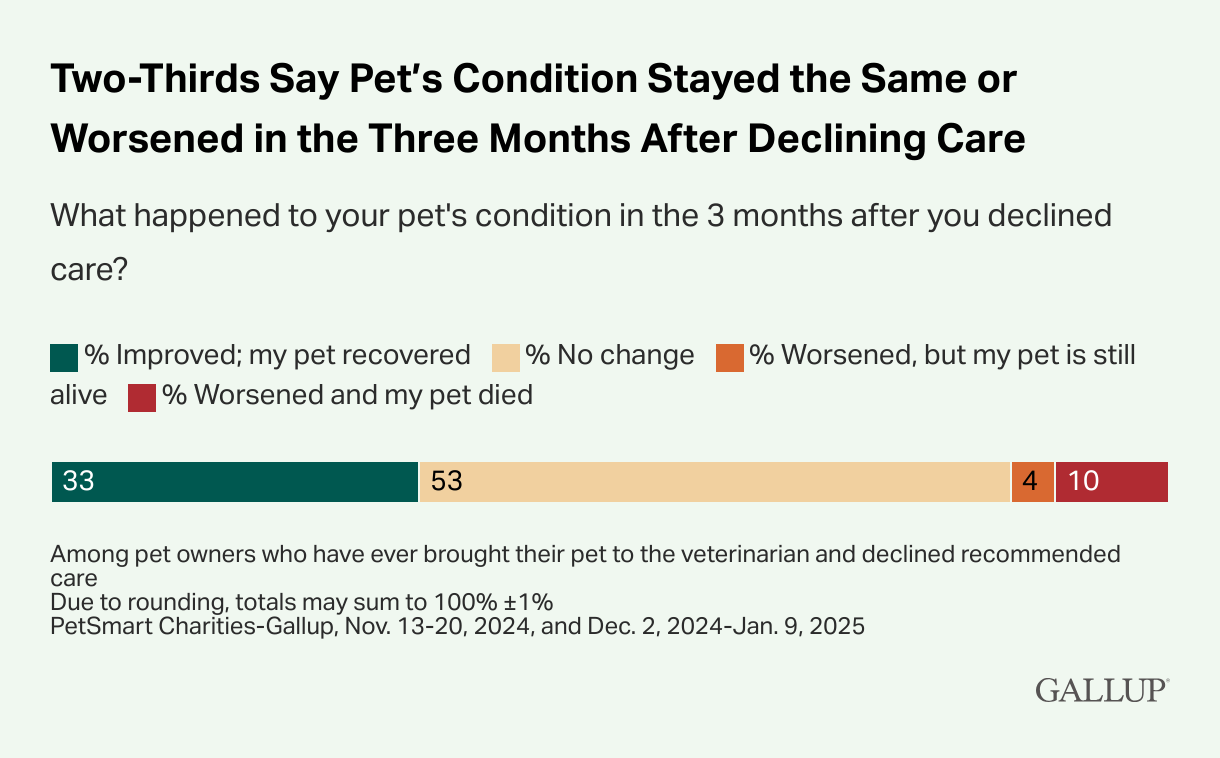
Many pet owners know someone who has lost a pet after declining care. Three in 10 pet owners (30%) report that a friend’s or family member’s pet died in the past five years because they could not afford treatment. Furthermore, 11% of owners know someone who had to give up a pet because of financial barriers to care.
That’s an impossible choice no pet parent should have to make. The problem is compounded when pets are surrendered to shelters often already operating under strained resources.
Implications
As veterinary care costs in the U.S. have risen more than 60% since 2014, ensuring access to affordable, quality care remains a significant challenge. Financial barriers force many pet owners to forgo recommended treatments for their pets, sometimes with life-threatening consequences. More than half of U.S. pet owners report having declined or skipped veterinary care due to cost, putting millions of pets at risk. PetSmart Charities has made a $100 million commitment to help improve access to veterinary care, but no one organization or solution can tackle this issue alone.
Expanding financial solutions could greatly improve access to critical treatments, while greater transparency in pricing and clearer communication about treatment options may help pet parents make more informed decisions.
PetSmart Charities believes everyone should have access to the love of a pet. Caring for pets helps improve the quality of people’s lives, too. Ensuring that veterinary care becomes more affordable and accessible for all households will be essential to protecting the health and wellbeing of pets and people – building blocks of strong communities.
Download data visuals and find other media tools here.
Learn more about PetSmart Charities Access to Veterinary Care programs here.
See the full report and learn more about how the PetSmart Charities-Gallup State of Pet Care Study works.




